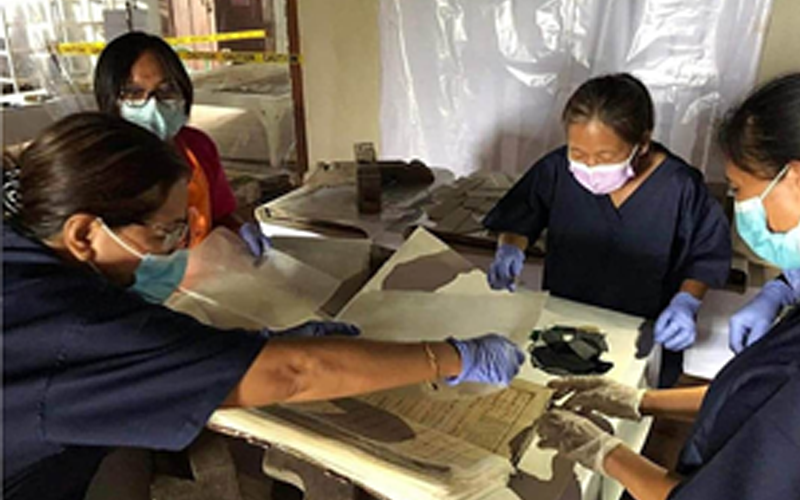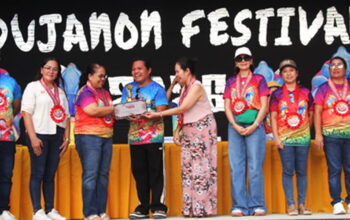
THE race is on to safeguard and safe-keep the priceless historical artifacts, works of liturgical arts, religious vessels, artifacts, vestments, sacred icons and archival records that have been soaked and possibly damaged by the typhoon Odette which peeled off the church and convent roofs and drenched the museum pieces and its inventory of equally rare immovable treasures.
Assistant museum administrator of the Parochial Museum of the Immaculate conception in Baclayon, Athena G. Vitor said while museum pieces can degrade over time, the task is to delay as much of the damage through proper restoration and curation and to salvage what can be done to prolong the life of the object so that people who wish to see them can still do so.
However, the drenching rains during the storm and the subsequent drastic climate changes in the museum and its repository areas have hastened the damage, that measures have to be done to save these priceless objects that the museum keeps, she stressed.
The museum in Baclayon however has barely enough money to run its daily operations, that sourcing out the funds for the restoration of these priceless objects may incur, is beyond the capacity of the museum and the diocese of Tagbilaran, she added.
Speaking at Piskay ni Bai, a new online talk show of the Philippine Information Agency in Bohol, Vitor said they are still carefully assessing the state of these objects so they can recommend the priorities for restoration, considering the costs and the degree of work to be done on an object.
During the show, Vitor showed the quaint wooden tabernacle with baroque motif and shows the flaking of possibly gold-leaf materials showing out the gesso primary coating.
While the urna-like 18th century tabernacle has flanking carved double solomonic columns, with flaking but majority of the gold paint still in, with and royal red Chinese-styled paintings, shows an already apparent dullness in the gold, one thing she points out as an after effect of the post-typhoon damage.
The same tabernacle still shows a rare and outstanding reverse painting, which is a skill perfected by the Chinese in the 1th century onwards, and the insides of the sagrario are well preserved paintings
The vice administrator of probably Bohol’s oldest running museum which has been opened for at least half a century, also pointed out that aside from the rare tabernacle, also needing immediate restoration and care are outstanding pieces like the Liberato Gatchalian paintings on canvas, the Misa Cantoral of mass songbooks with neumes written on a standard musical notation on stretched goat skin and bound in leather, and an interesting ramillete that has local fibers topped with a purple silken cloth and equally interesting cut lagang (nautilus shells) adornments.
A Gatchalian painting on wood planks placed at the inner side of the church entrance used up some P5 million in restoration fees in the late 1990s.
Closed after the earthquake in 2013, the newly revamped museum was set to be reopened in 2021, but the typhoon disrupted the schedule, only to be reset to its public reopening last October 15, 2022.
For this opening the gallery exhibit was curated by The University of Santo Tomas Center for Conservation of Cultural Property and environment in the Tropics through Director Eric Zerrudo, with Boholano chair of the Cathoklic Bishops Conference of the Philippines Commission on Cultural heritage of the Church, Fr Milan Ted Torralba.
The Parroquial Museum in Baclayon, although collecting a standard donation has the funds going to conservation of the collection, to put up the security measures in place and to regulate the crowd as the museum simply can not accommodate everyone at a single time in the gallery.
Vitor also quickly added that a museum is not a profit permanent institution in the service of society that researches, collects, conserves, interprets and exhibits the tangible and intangible heritage.
Museums are primarily educational and non-profit, but the cost of keeping these objects for public viewing alone, is hurting the museum sustainability, she hinted.
Other than the most immediate need for conservation of the rare museum objects in its collection, the space limitaiions in the museum for the development of additional galleries rise as a challenge. (RAHC/PIA-7/Bohol)


